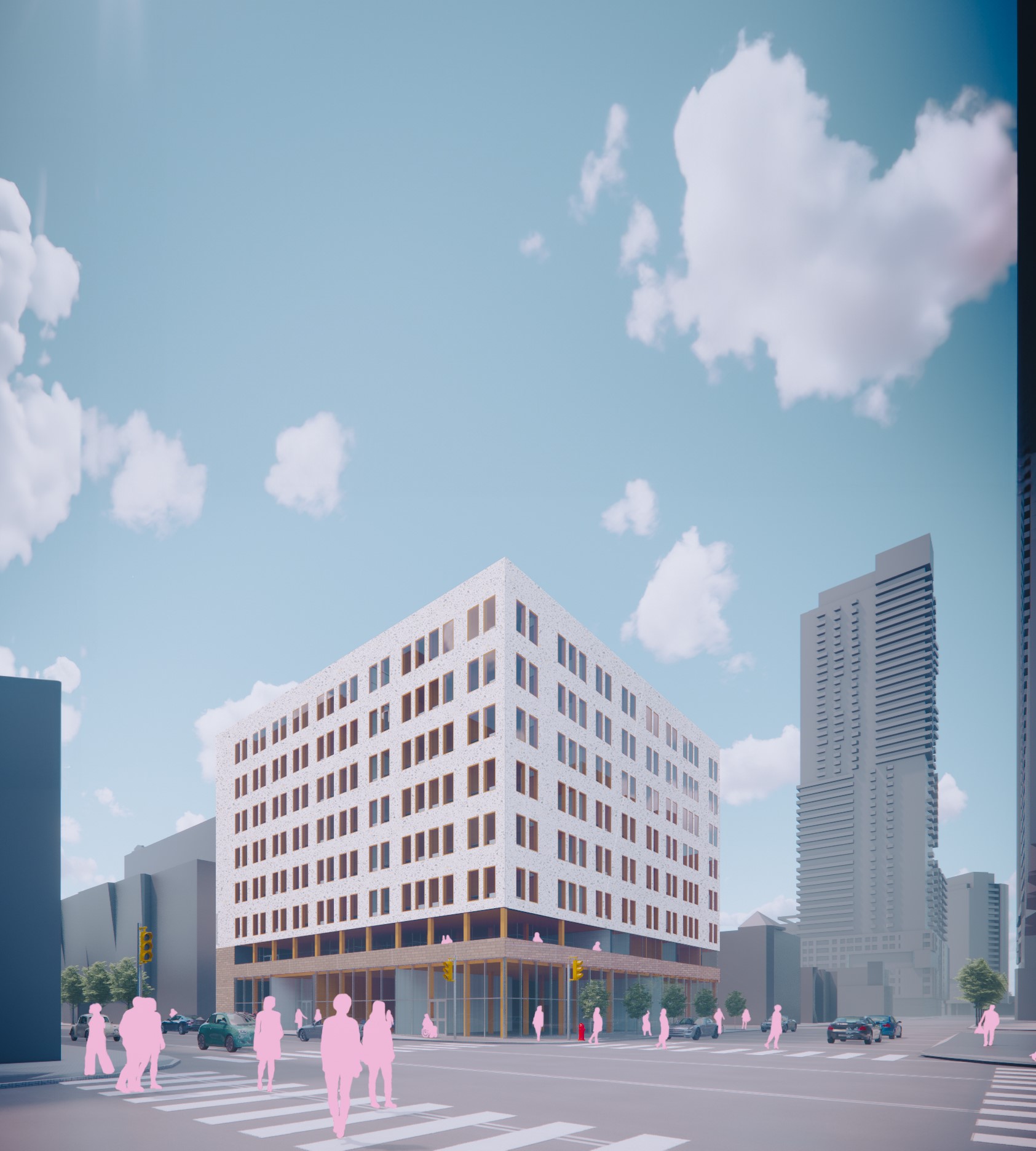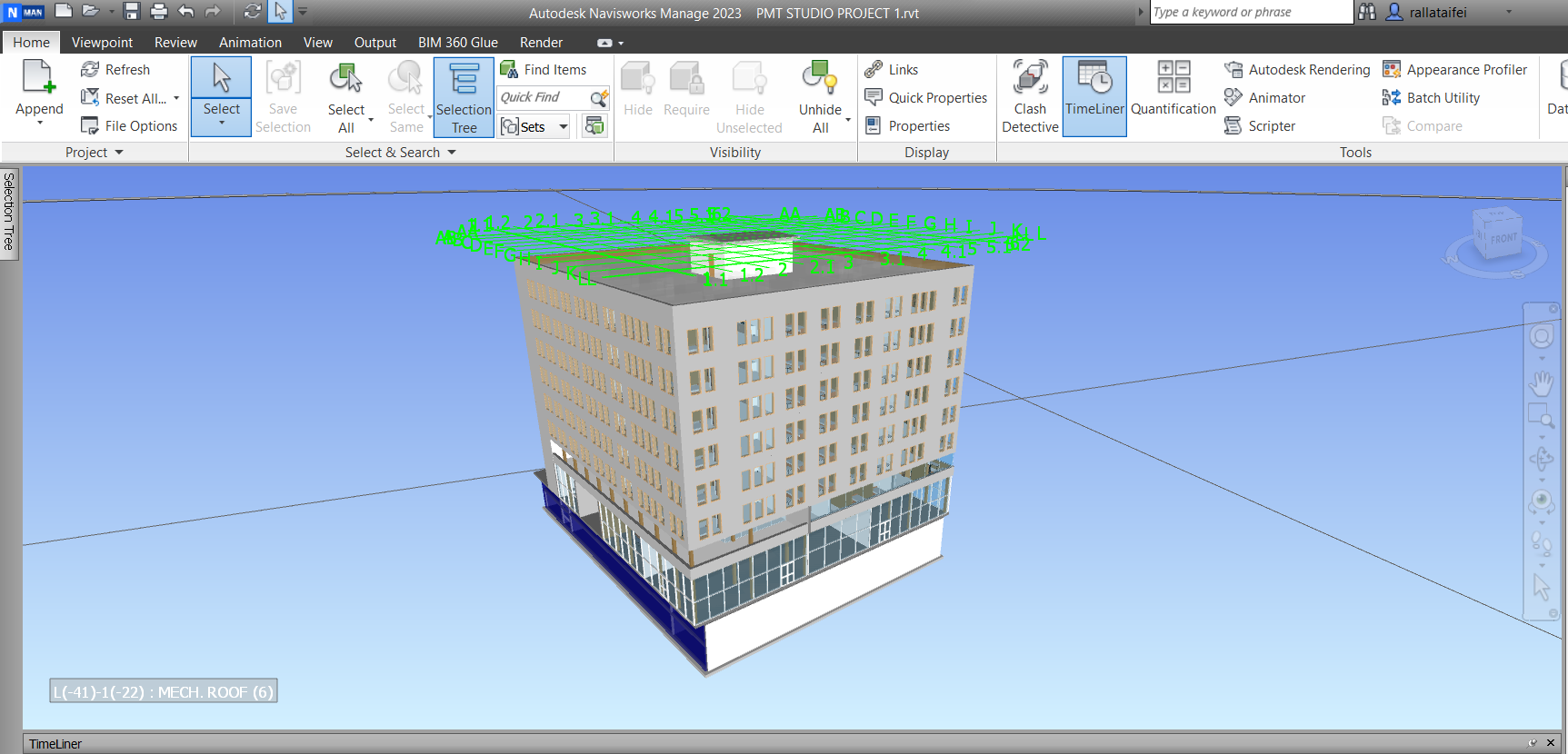UNDERGRADUATE
Raya Allataifei—General Contractors Association of Toronto Award
![]()
Raya Allataifei—General Contractors Association of Toronto Award

About the Award
For overall excellence and a demonstrated interest in project management is presented to fourth year students.
In the dynamic landscape of today’s architecture, the role of an architect extends far beyond the realms of creativity and design. Architects are now expected to be multifaceted professionals who possess the ability to transform innovative concepts into tangible, functional structures while also navigating the intricate maze of project development to ensure everything stays on track, on schedule, and within budget.
At the heart of this intricate process lies project management, a discipline that acts as the guiding compass for architects as they navigate the complex journey from concept to realization. Over the past 16 months, during my participation in the Co-op program at Toronto Metropolitan University, I’ve come to appreciate the paramount importance of project management in the world of architecture. These hands-on experiences have been enlightening, shedding light on the multifaceted challenges that architects face in the real world.
I’ve witnessed firsthand how meticulous project management can spell the difference between the success of a project and one fraught with delays, budget overruns, and quality issues. It’s clear to me that project management is not merely a technical skill but an art that hinges on collaboration. Architects operate within an environment where they must harmonize with diverse teams of engineers, contractors, and suppliers, ensuring that everyone shares a common vision and works in sync towards the project’s goals. Effective communication, conflict mediation, and maintaining consensus among stakeholders are just as crucial as any technical aspect of architecture.
In light of this, I have made a deliberate decision to enroll in the Project Management studio for my fourth year at Toronto Metropolitan University. I firmly believe that this unique studio will equip me with the essential foundation and expertise needed to thrive in the ever-evolving field of architecture.
Through my pursuit of Project Management courses (PMT), I am eager to equip myself with a comprehensive set of skills and software tools required to navigate this intricate landscape successfully. The PMT courses will provide me with a deep understanding of project planning, resource management, risk assessment, and effective communication – all vital components of modern architecture.
Furthermore, I recognize that the architectural field is becoming increasingly interdisciplinary, with a growing emphasis on sustainable and innovative design. Project management skills will allow me to seamlessly collaborate with experts from various fields, promoting a holistic approach to architecture that addresses both aesthetic and functional considerations.
In a world where architects are expected to be well-rounded professionals who not only conceive visionary designs but also bring them to life efficiently and effectively, project management is the bridge that connects creativity and execution. It is the art of turning dreams into reality, and I am eager to embrace this facet of architecture to excel in the ever-evolving and increasingly interdisciplinary world of design and construction. By mastering the art of project management, I aspire to be a versatile architect capable of not only envisioning innovative designs but also transforming them into tangible, sustainable, and impactful structures that leave a lasting mark on the built environment.
In conclusion, my journey through the Co-op program and my commitment to studying project management in my fourth year have reaffirmed my belief in the indispensability of project management skills for architects. These skills are the linchpin that allows architects to transform visionary concepts into tangible, functional, and aesthetically pleasing structures while ensuring projects are completed on time and within budget. As I continue to develop my understanding of project management, I am confident that I will be better equipped to contribute to the ever-evolving world of architecture and make a positive impact on the built environment. My goal is to be at the forefront of innovative and sustainable architectural practices, leveraging project management as a vital tool to bring meaningful and impactful designs to life.
For overall excellence and a demonstrated interest in project management is presented to fourth year students.
In the dynamic landscape of today’s architecture, the role of an architect extends far beyond the realms of creativity and design. Architects are now expected to be multifaceted professionals who possess the ability to transform innovative concepts into tangible, functional structures while also navigating the intricate maze of project development to ensure everything stays on track, on schedule, and within budget.
At the heart of this intricate process lies project management, a discipline that acts as the guiding compass for architects as they navigate the complex journey from concept to realization. Over the past 16 months, during my participation in the Co-op program at Toronto Metropolitan University, I’ve come to appreciate the paramount importance of project management in the world of architecture. These hands-on experiences have been enlightening, shedding light on the multifaceted challenges that architects face in the real world.
I’ve witnessed firsthand how meticulous project management can spell the difference between the success of a project and one fraught with delays, budget overruns, and quality issues. It’s clear to me that project management is not merely a technical skill but an art that hinges on collaboration. Architects operate within an environment where they must harmonize with diverse teams of engineers, contractors, and suppliers, ensuring that everyone shares a common vision and works in sync towards the project’s goals. Effective communication, conflict mediation, and maintaining consensus among stakeholders are just as crucial as any technical aspect of architecture.
In light of this, I have made a deliberate decision to enroll in the Project Management studio for my fourth year at Toronto Metropolitan University. I firmly believe that this unique studio will equip me with the essential foundation and expertise needed to thrive in the ever-evolving field of architecture.
Through my pursuit of Project Management courses (PMT), I am eager to equip myself with a comprehensive set of skills and software tools required to navigate this intricate landscape successfully. The PMT courses will provide me with a deep understanding of project planning, resource management, risk assessment, and effective communication – all vital components of modern architecture.
Furthermore, I recognize that the architectural field is becoming increasingly interdisciplinary, with a growing emphasis on sustainable and innovative design. Project management skills will allow me to seamlessly collaborate with experts from various fields, promoting a holistic approach to architecture that addresses both aesthetic and functional considerations.
In a world where architects are expected to be well-rounded professionals who not only conceive visionary designs but also bring them to life efficiently and effectively, project management is the bridge that connects creativity and execution. It is the art of turning dreams into reality, and I am eager to embrace this facet of architecture to excel in the ever-evolving and increasingly interdisciplinary world of design and construction. By mastering the art of project management, I aspire to be a versatile architect capable of not only envisioning innovative designs but also transforming them into tangible, sustainable, and impactful structures that leave a lasting mark on the built environment.
In conclusion, my journey through the Co-op program and my commitment to studying project management in my fourth year have reaffirmed my belief in the indispensability of project management skills for architects. These skills are the linchpin that allows architects to transform visionary concepts into tangible, functional, and aesthetically pleasing structures while ensuring projects are completed on time and within budget. As I continue to develop my understanding of project management, I am confident that I will be better equipped to contribute to the ever-evolving world of architecture and make a positive impact on the built environment. My goal is to be at the forefront of innovative and sustainable architectural practices, leveraging project management as a vital tool to bring meaningful and impactful designs to life.


